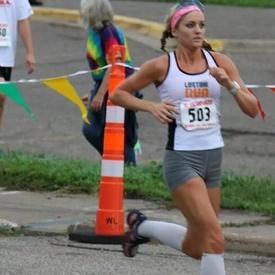Can building muscle keep you from reaching your ideal BMI ?

dee74
Posts: 62 Member
According to many BMI charts I still need to lose 50-60 pounds before I am not overweight! I set my original goal just because that seemed like a good number. I have been working out with Power 90 and Power 90 Master Series for a little over a year and have gained substantial strength. I know muscle is more dense and I also know a pound is a pound regardless if it is muscle or fat. To give you a visual I went from wearing XXXXL to just L. And my pants went from size 54 to 40-42. When look in the mirror I think where are those other pounds going to come from. I will not lie I do still have a little stomach but as my skin has tightened up I am slowly seeing my abs. I in no way look like a body builder but I have definitely toned up quite a bit, I went from maxing out with an 8 pound dumbbell to maxing out with a 40 pound dumbbell. Well I just thought I would throw this question out there any input is appreciated.
0
Replies
-
-
BMI does not differentiate between muscle and fat. You can be overweight according to it yet be all muscle. Body fat percentage is a better measurement for someone who has a lot of muscle.0
-
That's why BMI isn't a viable measure of health. A better measure is hip to waist ration.0
-
my bmi says i'm nearly overweight (my bmi is 24.6 when max for healthy is 25), i have a fat % of 23 when the recommended % for females of my age is between 20 and 29, so i'm on the lower half of that. i'm going to look at fat %.0
-
How do you test your body's fat %?0
-
I am surprised people still waste their time with BMI. It's worthless.
@nishababy77 they sell scales that measure it. maybe not the most accurate but it helps see in which direction your body is moving. calipers for body fold measurements are also readily available, if you want to use that method.0 -
BMI is a joke, don't go by that.
Quote for truth. It's a ballpark figure for when you're a long way away, but other than that it is useless.0 -
How do you test your body's fat %?
I don't know how accurate it is but it should give you an indication: http://www.scientificpsychic.com/fitness/diet.html0 -
You could be super fit & built like a Brick *kitten* House and your BMI will say .... OBESE!!
 0
0 -
BMI isn't really a "joke".. but okay people. If you're really concerned maybe you should ask your doctor. Congrats on the weight loss so far! but try to use actual resources in real life to help you figure this out. You will probably need to figure out your body composition if you really believe that you are at a healthy weight.
BMI usually works for a vast majority of the population, but you may be in the exception range!0 -
How do you test your body's fat %?
There's an app for that. Totally serious. It's called "Fitter". And it's free.0 -
BMI usually works for a vast majority of the population, but you may be in the exception range!
BMI assumes very little lean body mass - anyone exercising regularly will be an exception.0 -
I would agree with others and say to ignore BMI. My BMI is 24.3 which is is just barely under overweight. However my bodyfat measured by calipers is around 11% which is good. To get below 20 BMI, which is still considered healthy i would have to get to 0% bodyfat and lose about 18 pounds of lean body mass. Maybe I could do that if I got some terminal disease and wasted away in the hospital. Buy some calipers from a health food store and measure yourself to get an accurate idea of where you stand with weight.0
-
BMI is a good tool for some, but not for everybody. If you're concerned and think you should stop gaining muscle so as to lower your BMI...please don't! Building muscle and knowing you're stronger is a much better indicator of health than an equation based on generalizations.0
-
First off, congratulations on all the progress you've made!! I feel a little intimidated giving any kind of advice to someone who's obviously already sooo successful! Ahem...but here are my thoughts anyway...
BMI is useful when you're just getting started, to get a GENERAL idea of where you are and where you ought to aim to get.
But I'll strongly echo others here and point out that your Body Fat Percentage is a much better measure of your fitness progress. It's fat that you're getting under control, eh?
I'm a big fan of the "Fat 2 Fit" guys and their podcast, and here are a couple of body fat calculators they have:
http://www.fat2fitradio.com/tools/
No online calculator is as accurate as what would be offered by a doctor or other professionals with super-duper, expensive water-displacement/bio-electrical impedence/whatever tools, but an online calculator will give you a more meaningful way to track your progress than following the number on a scale.
Soooo....to give you my thoughts about your question, there's every reason to continue to work out and build muscle! You're closing in on your goal weight, so it's actually time to stop caring about that number on the scale, and measure your (excellent) fitness by using something more relevant to your goal of being fit -- your body fat percentage.0 -
BMI isn't really a "joke".. but okay people. If you're really concerned maybe you should ask your doctor. Congrats on the weight loss so far! but try to use actual resources in real life to help you figure this out. You will probably need to figure out your body composition if you really believe that you are at a healthy weight.
BMI usually works for a vast majority of the population, but you may be in the exception range!
I would ask my doctor but in his opinion someone my age should not carry as much muscle. We definitely had a disagreement. As stated I am not a body builder either. I just think for me a little extra muscle feels good and definitely greatly increases my stamina.0 -
First off, congratulations on all the progress you've made!! I feel a little intimidated giving any kind of advice to someone who's obviously already sooo successful! Ahem...but here are my thoughts anyway...
BMI is useful when you're just getting started, to get a GENERAL idea of where you are and where you ought to aim to get.
But I'll strongly echo others here and point out that your Body Fat Percentage is a much better measure of your fitness progress. It's fat that you're getting under control, eh?
I'm a big fan of the "Fat 2 Fit" guys and their podcast, and here are a couple of body fat calculators they have:
http://www.fat2fitradio.com/tools/
No online calculator is as accurate as what would be offered by a doctor or other professionals with super-duper, expensive water-displacement/bio-electrical impedence/whatever tools, but an online calculator will give you a more meaningful way to track your progress than following the number on a scale.
Soooo....to give you my thoughts about your question, there's every reason to continue to work out and build muscle! You're closing in on your goal weight, so it's actually time to stop caring about that number on the scale, and measure your (excellent) fitness by using something more relevant to your goal of being fit -- your body fat percentage.
thanks for this - I have saved it into my favourites.
I have crunched my numbers and am pleased with 28%, I know this will sound a lot but I'm 181lbs and it's helped me realise my goal is realistic for 'me'. I set it at 147 as i was fit and happy at that weight, I have never been a traditional slim girl as I played hockey and weight lifted for fun in my teens, I was in the TA too which was all strength based apart from running. So in my early 20's I was 147 or there abouts and that is what my goal was. I had wondered what bf % that would be - I look forward to finding out as the tool predicted I have 50lbs of fat on me. I'm def going to switch from BMI to BF now.
Cheers :flowerforyou:
footnote - regarding doctors... Mine advised me to give up riding and having a horse of my own.. because I pulled my back....doing up my daughters zip!! At the time this was my only form of exercise and yet she advised me to give up my horse.. not to lose weight which I know she should have been telling me! So not every GP knows everything.. or tells you everything. lol0 -
Sorry to bust some bubbles, but BMI applies to most average people who are not athletes.
To say that BMI is skewed based on lean body mass is true, but for it to get to that point for most of us as average people, we'd have to be athletes. Sorry, but the average person isn't going to be "converting" fat to lean that quickly or completely.
In other words, stop fooling yourselves into dismissing BMI as worthless, just because it tells you something you don't want to hear.
"Adding muscle" isn't as easy as average people think it is, and again, if you get to that point where the BMI figure is inaccurately skewing its results to call you "overweight" or "obese" because of lean mass, then you're already an athlete or have been doing this dieting/working out thing for long enough to where you know you don't need to rely on it anymore.
The average person isn't at that point.
I am male, 5'8" and weigh 149. My BMI calculates to 22.7. My BF% is currently 17%. Two years ago when I was at my leanest, I was 148, but with a BF% of 14%. My BMI then would have been 22.5.
Look at the numbers. My lean-to-fat currently is 123.67 - 25.33. Two years ago, it was 127.28 - 20.72
The difference between then and now was 4 lbs. more lean weight despite weighing one overall pound less. My BMI was off by 0.2, so you can see that it's not significant enough of a difference for non-athletes.
In my case, if I gained 16 lbs. of pure lean weight, THEN BMI would call me overweight. My numbers at that point would be 165 overall weight with 139.67 lbs. lean to the same 25.33 lbs. of fat, for a BF% of 15. That would be VERY difficult for me to achieve and maintain that delicate balance -- I'd essentially have to concentrate solely on gaining weight, probably up to about 175 or 180 first to build muscle and take the fat that comes with it, and then diet the hell out of myself to cut down to 165. It's not going to be quick, and it won't be easy. But you can see that if I'm going to be doing that, then I'm going to know what I need to eat, how to work out, and so on, such that I understand that I can't rely on BMI anymore.
BMI never claimed to be a one-size-fits-all measure of accuracy. The problem lies in putting too much stock into its ranges and charts. However, it is inaccurate to completely dismiss its results just because it's not telling you what you want to hear.0
This discussion has been closed.
Categories
- All Categories
- 1.4M Health, Wellness and Goals
- 398.2K Introduce Yourself
- 44.7K Getting Started
- 261K Health and Weight Loss
- 176.4K Food and Nutrition
- 47.7K Recipes
- 233K Fitness and Exercise
- 462 Sleep, Mindfulness and Overall Wellness
- 6.5K Goal: Maintaining Weight
- 8.7K Goal: Gaining Weight and Body Building
- 153.5K Motivation and Support
- 8.4K Challenges
- 1.4K Debate Club
- 96.5K Chit-Chat
- 2.6K Fun and Games
- 4.8K MyFitnessPal Information
- 12 News and Announcements
- 21 MyFitnessPal Academy
- 1.6K Feature Suggestions and Ideas
- 3.2K MyFitnessPal Tech Support Questions















